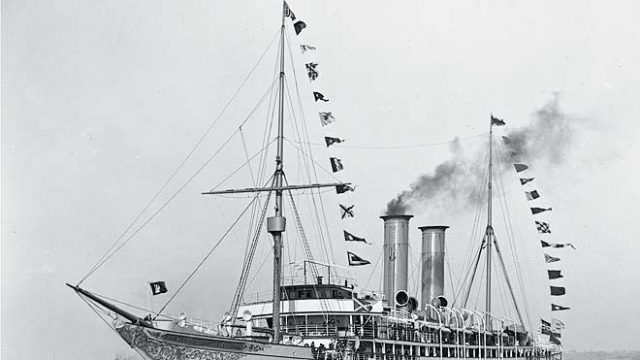The father of the modern-day cruise ship was the Prinzessin Victoria Luise, a German liner purpose-built for tourism. A couple of others can claim to have run the first cruises — the Italian ship Francesco I, for example, which sailed European nobility from Naples to ports around the Mediterranean in 1833; or the P&O Steam Navigation Company, which ran the first passenger cruises from Southampton starting in 1844.
However, the PVL was the first ship that was built solely to serve as a cruise ship. The parent company, Hamburg-Amerikanische-Packetfahrt-Actien-Gesellschaft, had been running successful cruises, or ‘excursions’ as they were called, since the 1880s, but they found that ocean liners were too large and cumbersome to effectively sail and dock at various ports of call. So this one was built in 1900 to exacting luxurious specifications. Constructed like a yacht, it had 120 cabins — all first class — staterooms and a library and a gymnasium, as well as a darkroom for amateur photographers.
The ship sailed from Hamburg to New York in 1901, before embarking on a cruise of the West Indies. It would go on to undertake regular cruises to the Mediterranean, the Black Sea, as well as the Baltic. Hailed as an engineering marvel, the PVL drew high praise from many scientific journals, including the Scientific American (pictured above).
However, this proud ship was to have a short career. On a cruise of the West Indies in 1905, while attempting to enter the Kingston harbour at night, the captain mixed up two different lighthouses, and the ship ran aground. The passengers were rescued, but the captain shot himself. When efforts to salvage the ship failed due to extensive structural damage, this trailblazing cruise ship was given up for good. A shame, but the Prinzessin Victoria Luise had by then established that the cruise was an idea whose time had come.




